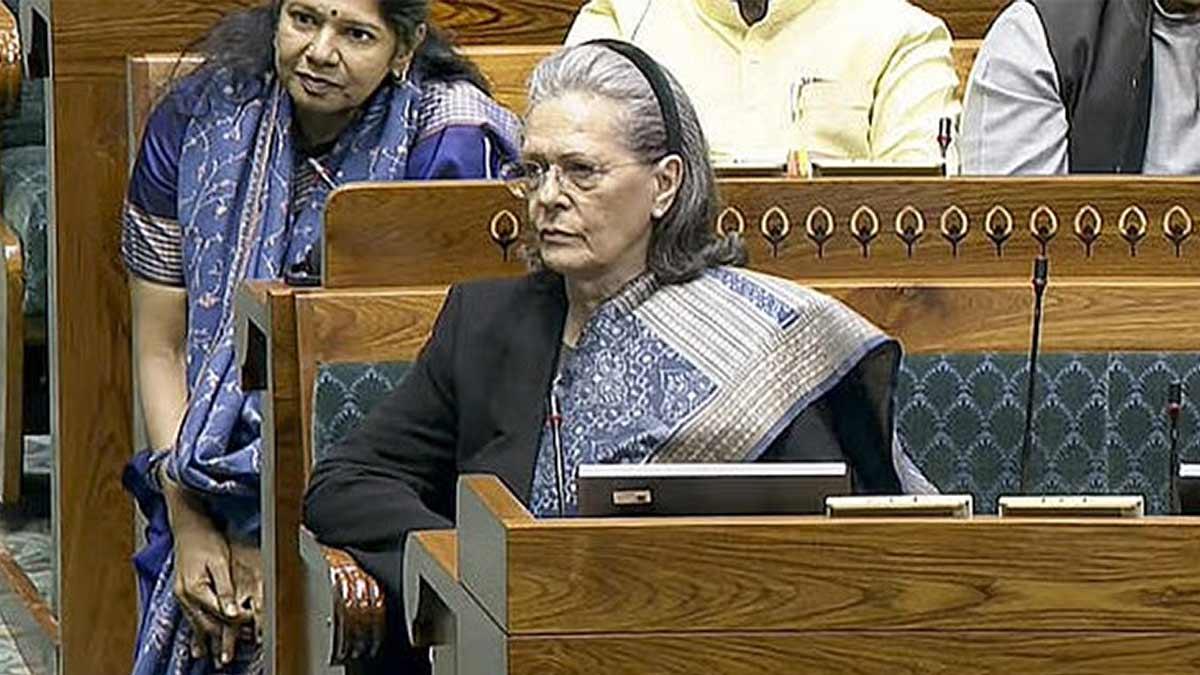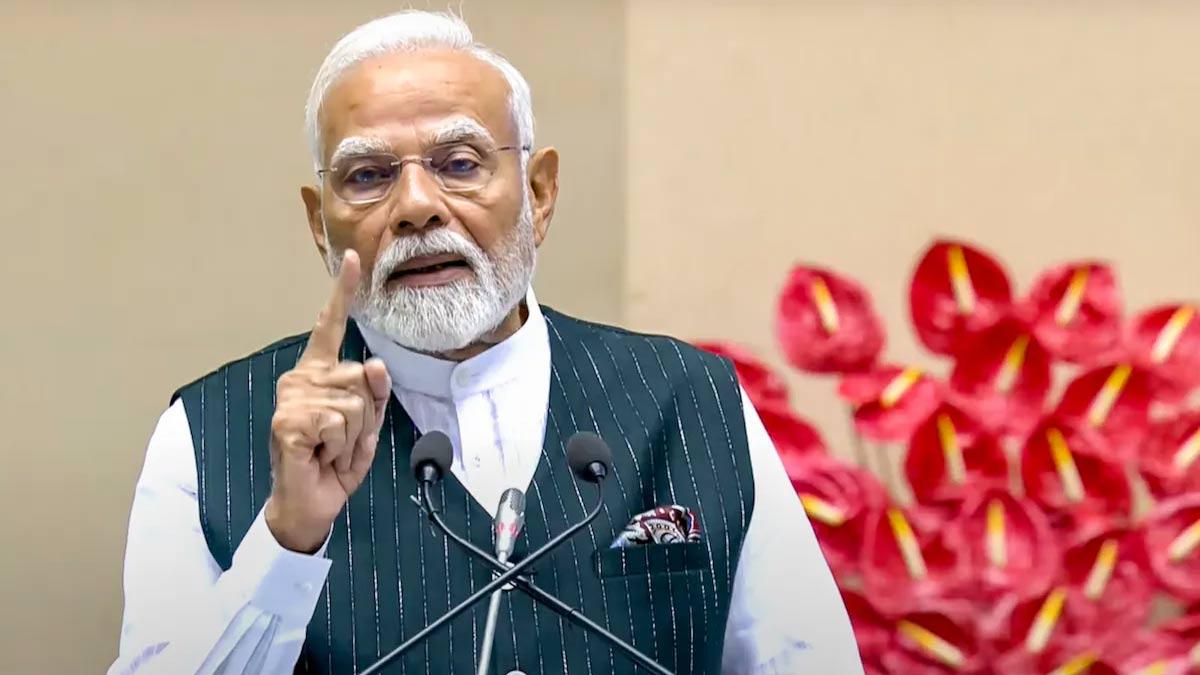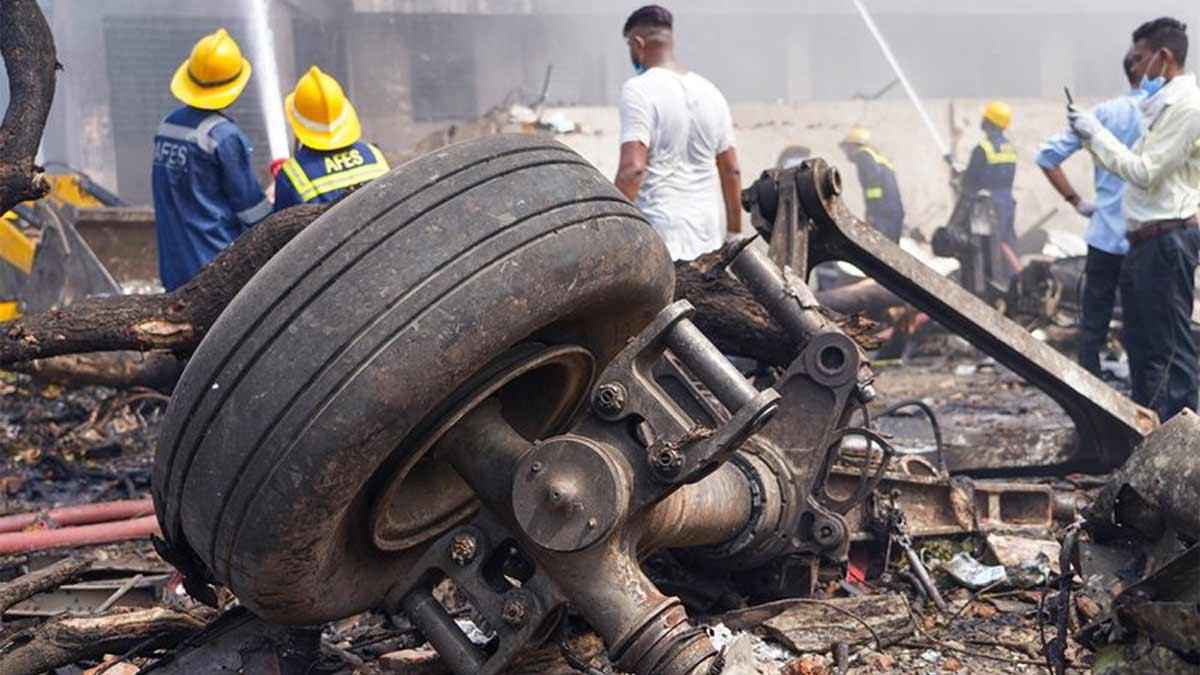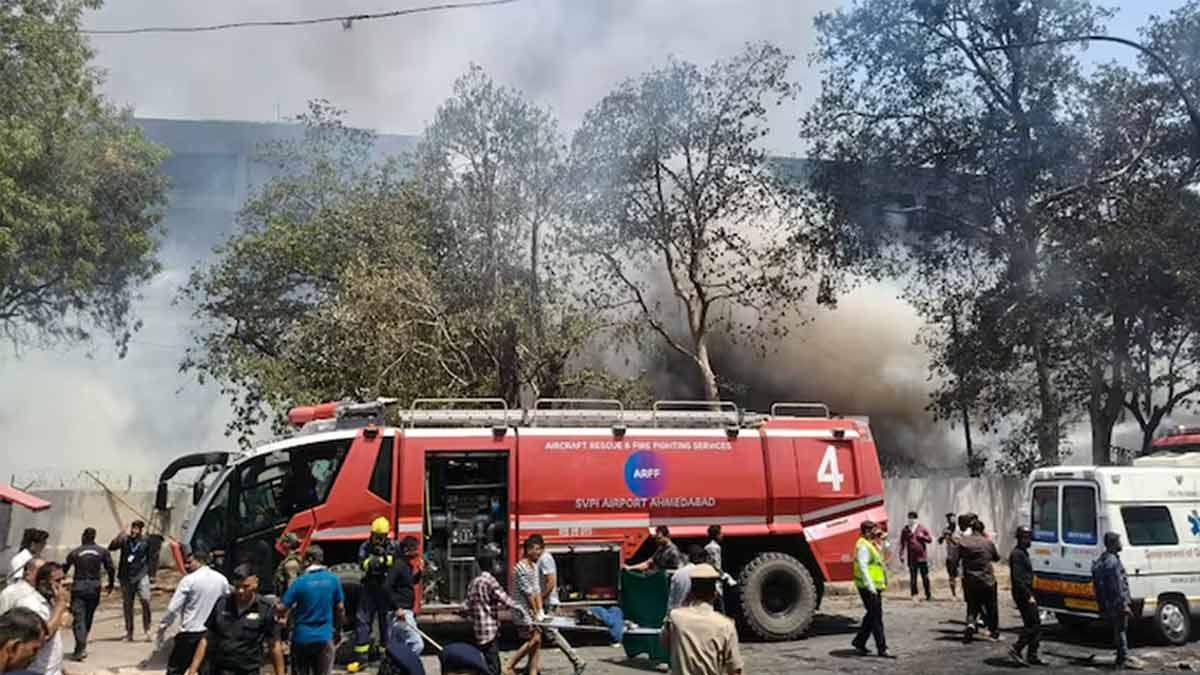Congress president Sonia Gandhi has roundly condemned the Indian government's inaction on the growing Israel-Iran conflict, terming it not only a diplomatic failure but also a glaring departure from India's traditional ethical and strategic position. In a strong opinion article in The Hindu, Gandhi characterized Israel's June 13 airstrike on Iranian soil as "illegal and an affront to sovereignty."
The offensive has triggered a perilous round of retaliatory strikes with missiles and drones between the two countries, creating increasing instability throughout the Middle East.
"The Indian National Congress strongly condemns these bombings and targeted killings on Iranian territory, which are a dangerous provocation with serious regional and international implications. Like so many of Israel's recent acts, from its disproportionate and vicious campaign in Gaza to this operation, it has been carried out with complete disregard for civilian lives and regional stability. These measures will further worsen the instability and create the seeds for greater conflict," Gandhi said.
The Israeli attack, targeting strategic Iranian military installations, came at a sensitive moment when diplomatic efforts between Iran and the United States were finally yielding some promise. No fewer than five rounds of nuclear talks had already been conducted in 2025 alone, with a sixth session being reported as scheduled to take place later that June.
Looking back on history, Gandhi commented, "History tells us that Mr Netanyahu assisted in fueling the flames of incitement that led to the assassination of Prime Minister Yitzhak Rabin in 1995, bringing an end to one of the most promising peace efforts between Israelis and Palestinians."
She also condemned former U.S. President Donald Trump for ignoring the assessments of his intelligence agencies in order to adopt an aggressive role.
"Mr Trump has before cautioned against never-ending wars and the dominance of the military-industrial complex. But now seems to be following the same path that resulted in the Iraq war," she said, alluding to the debunked rationale for the 2003 invasion of Iraq.
Gandhi emphasized India's historically complex relationship with both Israel and Iran. Even as New Delhi has greatly increased its defence, trade, and intelligence cooperation with Israel in the last three decades, it also has deep bonds with Iran—cultural, strategic, and diplomatic.
"Iran has been a long-standing friend of India and is bound to us by deep civilisational ties. It has a history of steadfast support, including in Jammu and Kashmir at critical moments.". In 1994, Iran facilitated a blocked UN Commission on Human Rights critical resolution against India on the Kashmir dispute. In fact, the Islamic Republic of Iran has been even more accommodating of India than its predecessor, the Imperial State of Iran, which had leaned towards Pakistan during the 1965 and 1971 conflicts," she noted.
She also emphasized the effect of American withdrawal from the 2015 Joint Comprehensive Plan of Action (JCPOA), which significantly damaged India's strategic and economic undertakings like the Chabahar Port project and the International North-South Transport Corridor.
In her piece, Gandhi did not hesitate to speak about the cost in terms of human lives of the continuous wars. "Over 55,000 Palestinians have been killed. Whole families, neighborhoods, and even hospitals were destroyed. Gaza is at the verge of starvation, and its civilian population is still facing unimaginable suffering," she wrote.
Gandhi ended by making a forceful call for India to recommit itself as a values-based diplomatic force in the region. She called on the Indian government to get actively involved in fostering peace and dialogue in West Asia.
In the midst of this humanitarian disaster, the Narendra Modi government has essentially forsaken India's time-honored and principled policy of a non-violent two-state resolution, one in which an independent, sovereign Palestine coexists with Israel in co-equal security and dignity," she wrote. "New Delhi's deafening silence over the destruction in Gaza and now over the unprovoked aggression against Iran is a worrying abandonment of our moral and diplomatic norms.". This is not only a loss of voice but also a loss of values.
"It is still not too late. India needs to speak clearly, act responsibly, and utilize every diplomatic means at hand to defuse tensions and facilitate a return to dialogue in West Asia," she repeated.
Gandhi made the comments soon after a press briefing by Iranian senior diplomat Mohammad Javad Hosseini, Deputy Chief of Mission at the Iranian Embassy in New Delhi. Hosseini urged India and other countries to condemn Israel's recent actions as "military aggression.
Addressing the briefing, he cautioned against broader regional consequences. "We think that all countries including India ought to condemn it—not because of their relationship with Iran but because these are actions that are in contravention of international norms," he said.
Read also| Air India Fires Cabin Crew Over ‘Falsifying Critical Information’ in Ongoing Probe
Read also| PM Modi Explains Turning Down Trump’s Invitation to Visit the US


















